Over 2,200 Hijab Cases Filed In Past Four Months
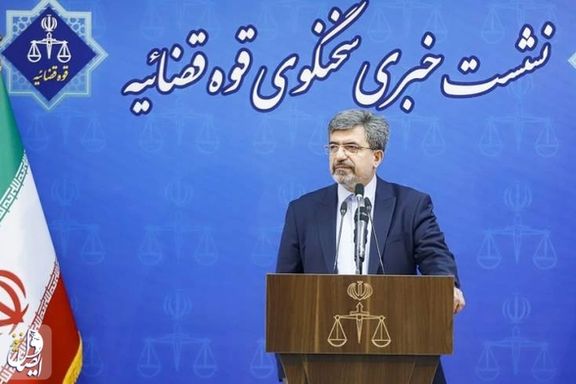
The Iranian Judiciary has reported that a total of 2,251 hijab-related cases were filed during the initial four months of the current Iranian year.

The Iranian Judiciary has reported that a total of 2,251 hijab-related cases were filed during the initial four months of the current Iranian year.
Masoud Setayeshi, the spokesman for Iran's Judiciary, disclosed the figures, adding that out of the 2,251 hijab cases, 825 resulted in convictions, 344 were prohibited from prosecution, while 167 defendants were acquitted.
The penalties for those attempting to remove the hijab remain fierce. "The people who attempt to remove the hijab will be…sentenced to pay a fine equal to 15 million rials ($30) for the first time, and for the second time, in addition to the fine, they will also be sentenced to additional punishments," he said, without elaborating.
Setayeshi admitted that women found flouting the hijab in public roles such as celebrities or public figures, will be dealt with even more harshly, as has been seen since September, when athletes, actresses and others have faced the likes of travel bans, pay cuts, bank freezes and social media bans.
Recently, a hijab bill was passed by a parliamentary committee proposing penalties for celebrities who violate hijab rules, including the potential confiscation of up to 10 percent of their assets and incomes, part of ongoing attempts to curb the ever swelling tide of rebellion.
The bill defines "inappropriate clothing" as revealing the neck, arms above the wrist, and legs above the ankles, and will be subject to an increased cash fine of up to 500 million rials ($1,000) for the first offense.
However, legal experts have raised concerns over the new bill, asserting that it not only violates civil rights but also the Constitution, necessitating resources that exceed the government's means.
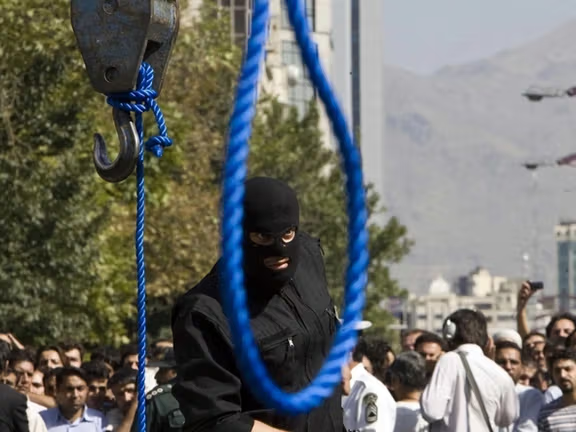
Human rights groups said Wednesday that at least 11 Baluch citizens were executed during the past three days, bringing the number of hangings to 423 in Iran in 2023.
Advocacy group Haalvsh, which reports on issues affecting the Baluch minority, said the executions were carried out in several prisons in the southwestern Sistan-Baluchestan province and the northeastern city of Birjand.
The report added that none of the prisoners – who had been sentenced to death over drug-related charges --had their final meeting with their families, “and the families have only been called to receive the bodies of their loved ones."
According to the Norway-based Iran Human Rights (IHRNGO),423 people – including 10 women -- were executed since the beginning of 2023.
In July, the US-based Human Rights Activists in Iran (HRANA) released a report saying that approximately 5,000 executions have taken place in Iran in the last 10 years.
With many cases of executions not officially reported, the actual number is undoubtedly higher.
According to a HRANA report, the number of executions increased by over 88 percent in 2022 compared with a year earlier. There was a sharp rise in reported human rights violations since mid-September when the 22-year-old Kurdish woman Mahsa (Jina) Amini died in the custody of the so-called 'morality police' following which protests swept across the country.
As the execution wave shows no signs of slowing, protests continue across the country, only fueled by the relentless crackdowns.
Amid a spike in executions since late April, on May 19, authorities arbitrarily executed three tortured protesters, Majid Kazemi, Saeed Yaghoubi and Saleh Mirhashemi who were convicted and sentenced to death in Esfahan without due process of law.
The deaths brought to at least seven the number of protesters hanged since nationwide protests broke out in September 2022 following the death in custody of 22-year-old Mahsa Amini.

Renowned satirist Shaker Bouri has been arrested by intelligence agents in Iran.
The arrest took place on July 31, and since then, there has been no information about his whereabouts or condition.
According to a statement from the Dadban Legal Education and Counseling Center, activists in Khuzestan province reported that Bouri disappeared after he visited the intelligence department of Abadan to collect his mobile phone after plainclothes forces previously raided his home, confiscated his cell phone, and took him away.
Bouri gained popularity on social media for his humorous yet pointed critiques of the country's officials and the prevailing issues. His satirical videos were known for their critical commentary, often touching on sensitive subjects.
Before his arrest, Bouri shared a picture of a history of anonymous calls from security institutions and disclosed that he was forced to delete some of his content.
Bouri's case is not an isolated incident, as the Iranian authorities have been cracking down on social media activists, artists, and comedians in recent months. Among them is Mehdi Etemad Saeed, a theater artist and actor who was arrested approximately two months ago.
Saeed, known for his work in underprivileged areas of Iran, especially in southern provinces and regions affected by natural disasters, has also been deprived of his right to legal representation and communication with his family.
Notably, several other artists and comedians including Taraneh Alidousti, Hengameh Ghaziani, Mohammad Sadeghi, Hamid Pourazari, Soheila Golestani, Zainab Mousavi, and others, have faced arrests and imprisonment during the Iranian uprising against the Islamic Republic.
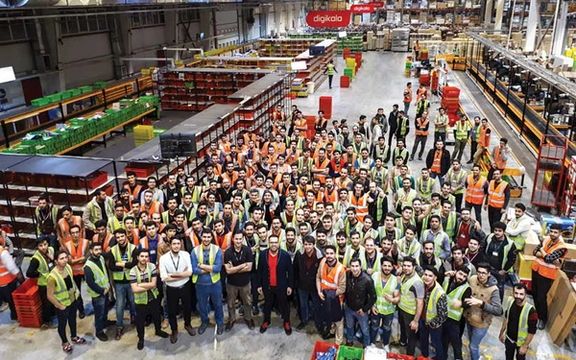
Days after several online shopping platforms were shut down by the Iranian government over lack of hijab, the Judiciary claimed it had no role in the decision.
Several online shopping platforms including online bookshop Taghcheh, online retailer Digikala, and marketing platform Azkey were shot down during the past few days not for their operations, but for the way their employees dressed in photographs posted on social media platforms.
The statement by the Judiciary Spokesman Massoud Setayeshi revealed the chaos surrounding the way the government enforces compulsory hijab and controls online businesses and social media platforms.
Setayeshi said that the Judiciary has never issued any order for the closure of online or other businesses. However, he confirmed that court cases have been launched for the online businesses about their employees’ hijab.
Meanwhile, adding to the confusion, Communications Minister Isa Zarepour also told the press on Tuesday that his ministry was not involved in the closure of online businesses. He said, “closure of a platform is not the right way to confront the employees.” Zarepour made it clear that “the right thing to do is confronting the employees," not punish the companies
Some of those platforms such as Digikala have tens of thousands of employees, subcontractors and businesses that supply the merchandise. Moderate website Rouiydad24 wrote in a report on Tuesday, “If we are involved in an economic war as the country’s officials say, why are you crippling people’s livelihood by shutting down online businesses?”
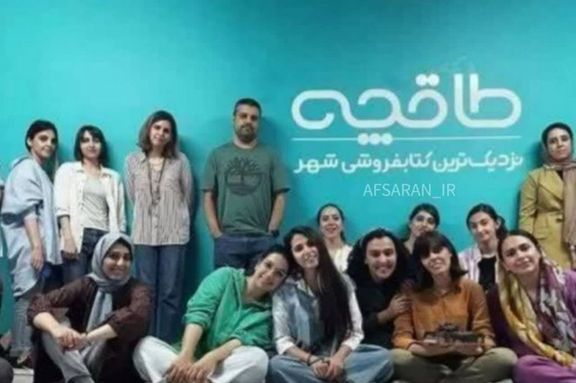
Donya-ye Eqtesad (Economic World) daily said: “The closure of online businesses affect thousands of their employees, providers, contractors and others involved in the business.” The daily further asked why platforms should be closed when the economy is the country’s biggest problem? Donya-ye Eqtesad also questioned the approach that widens the crisis of enforcing the compulsory hijab by extending it to online business, platforms and applications.
The daily went on to argue that “The people are the country’s most valuable asset. By making them unhappy, the expert workforce is likely to leave the country in a situation when we need them most.”
The daily also warned that the closures will do harm to the digital industry, which is the only growing sector in Iran’s economy.
Meanwhile, former Vice President Es’haq Jahangiri told reporters that the closure of online businesses threatens the private sector. He added that shutting down online businesses for hijab is like throwing a stone at a bunch of sparrows which also makes other sparrows flee.
He said this approach is worrying. While the production and services sectors are suffering from the current economic crisis, endangering their existence by shutting down online platform will make the private sector angry. He added: “The private sector needs security for its capital.”
Following the denials by various officials about their involvement in the closure of businesses, social media users noted the chaos in handling hijab and online activities in Iran and wrote that no one in the government is brave enough to accept responsibility for harsh measures. Some media outlets have quoted government spokesman Ali Bahadori as saying that President Ebrahim Raisi was unhappy about the decision to shut down those businesses, but he was not observed to say anything in public about the situation.
In the meantime, the identity of powerful state organs who had closed down online platforms remains a mystery.
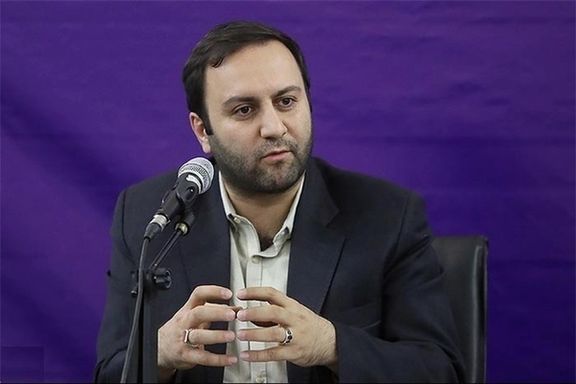
An Iranian lawmaker says identifying the culprits behind the livelihood pressure on citizens is a “secondary concern” and should not be “exploited by media opportunism”.
Referring to the alarming impoverishment of one-third of the Iranian population, Mohsen Pirhadi, the vice-chairman of the parliamentary committee for Iran’s Seventh National Development Plan said on Wednesday, "The rise in the country's population who live below the poverty line to 28 million is not solely attributable to policies implemented in the last two or three years."
Despite launching 12 development plans since the 1940s, aimed at building infrastructure, establishing key industries, and expanding public services and education, Iran still remains classified as a developing country, with an average economic growth rate of only 2.5 percent during the Islamic Republic.
Pirhadi further added that the impoverishment of such a significant portion of the population is a complex issue that “cannot be reduced to individual actions or political labels. Instead, it necessitates an in-depth examination and reevaluation of policies that have contributed to the economic decline of a substantial section of society.”
The "poverty line" in Iran represents the income level that covers the minimum essential needs of a household, with incomes below this line categorized as "absolute poverty." According to Iranian officials, the poverty line for residents of Tehran is approximately 300,000,000 rials (approx $600) per month, which is three times the minimum wage in Iran.
Like the other regime officials, he denied that the issue of widespread impoverishment is due to recent policies but said it is instead a result of various factors, including sanctions, the devaluation of the national currency, and management inefficiencies, which have accumulated over the past decade.
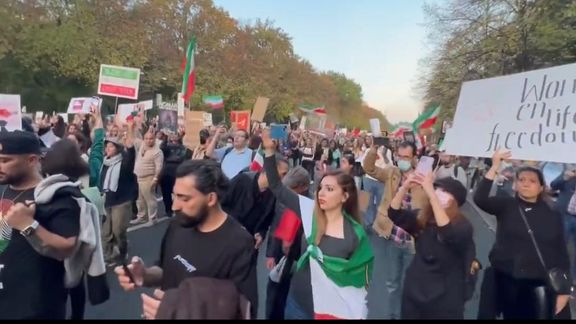
German-Iranians blasted Freiburg’s municipal government in Germany for voting last week to retain a twin city partnership with the Iranian city of Esfahan.
A majority of city council members from the left-wing parties, Greens and Social Democrats, rejected a motion from three small parties to end the controversial twin city partnership as protest to the Iranian regime’s gross human rights violations.
Iranian born Kazem Moussavi, who has campaigned for over twenty years against the dual city partnership, told Iran International that “It doesn’t matter to Mayor Martin Horn and his allies that independent civil society in Esfahan (Isfahan) is severely censored and brutally suppressed.
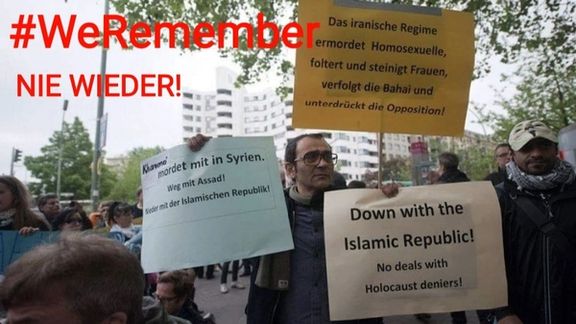
Dissidents and artists such as rapper Toomaj Salehi and Heshmatollah Tabarzadi were recently sentenced to long prison terms in Esfahan’s notorious torture prison, which is on the US sanctions list. Several women have also been executed there in recent months.”
The Freiburg Mayor has faced criticism from Amnesty International for going to great lengths to retain a city partnership with the clerical regime in Esfahan and for belittling grave human rights violations carried out by the regime.
According to the German media outlet SWR, Horn, who is not affiliated with a party, said he “wants to keep foot in the door” for the citizens of Iran by not shutting down the partnership. Horn refused to respond to numerous Iran International press queries.

Moussavi, who is the spokesman for the Green Party of Iran in Germany, also criticized Horn and the city council members who voted to retain the partnership, because they are ignoring that the morality police have been reactivated in Esfahan to ensure women wear the compulsory hijab.
The city council leader for the Free Voters, Johannes Gröger, issued a statement on behalf of his party and the JUPI (Young, Urban, Polarizing and Inclusive) and FL (Make Freiburg worth living) parties. Gröger said, “The conditions in Iran, especially in our partner city Esfahan, are getting worse and worse. Human rights are trampled on. The rights of women are disregarded, and the number of executions is increasing.” He added that “This is also supported by the incumbent mayor of our partner city and the local leadership elite.”
Behrouz Asadi, the head of the Democratic Forum of Iranians in Mainz, issued a public letter to Martin Horn ahead of the vote, urging him to end the twin city partnership and “send a clear statement against torture and executions and for the release of all political prisoners, especially with respect to the previously mentioned musician Toomaj Salehi.”
Asadi told Iran International that the city of Freiburg “must end its contact with the regime and support the citizens.” He said his organization will send a letter to the parties in Freiburg who voted to retain the partnership. He said the “morality police must be abolished” and termed the clerical regime a “terror regime and a murderous regime.”
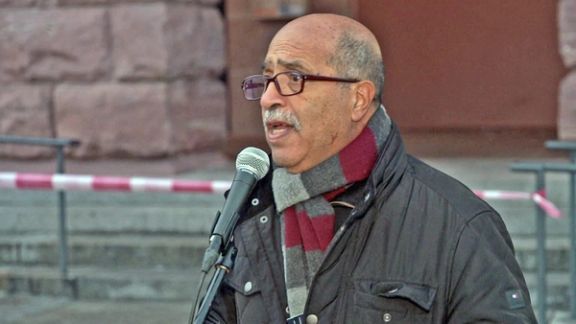
Asadi’s open letter was published in Persian and sent in German to Horn.
Freiburg, which is in the southwestern state of Baden-Württemberg, established its dual city partnership with Esfahan in 2000. Freiburg is the only city in Germany to have a municipal partnership with an Iranian regime-controlled city.
The German city of Weimar scrapped a partnership with Shiraz, in 2010, because regime officials on a trip to Germany refused to visit the Buchenwald concentration camp memorial.
The three parties opposed to the twin partnership in Freiburg said in their joint statement “The end of the twin city partnership should be a clear signal that Freiburg is committed to a world without oppression and human rights violations.”
Ulrich von Kirchbach, who serves as the Social Democratic Party’s cultural mayor in Freiburg, told SWR that “We don’t want to terminate any partnership because those who are now rebelling against the regime will feel completely abandoned.”
Simon Waldenspuhl, the leader of the JUPI political party, said the declaration issued by Freiburg in January is “too weak to express our contempt for such a brutal regime.” In January, Freiburg’s city government put the partnership on ice.
The FL city councilman, Wolf-Dieter Winkler, said “We increasingly must acknowledge that the persecution of people in Iran, including in our partner city Esfahan…even if declared dormant, no longer seems justifiable.
Horn is widely known as the German mayor who continues to do the heavy lifting for Iran’s regime via his strident activism to retain the dual city partnership. Critics argue Horn and the pro-Esfahan city council representatives have stained Freiburg’s reputation.
Sheina Vojoudi, who fled the Islamic Republic of Iran to Germany to escape persecution, told Iran International why a “German city prefers to turn a blind eye to all the human rights violations specifically in Esfahan.”

Vojoudi, who has been campaigning to end the partnership, added “Toomaj Salehi is a living proof of human rights violations in Esfahan who’s sentenced to six years and three months in prison for his critical rap songs. I would love to remind Freiburg of the Esfahan farmers who were shot by the regime forces for protesting severe water shortages. Hopefully the city council and the decision makers followed it closely that many of those innocent farmers lost their eyes.”
According to Vojoudi, who is an associate fellow for the Gold Institute for International Strategy, “Each partnership with this regime is a stab in our people’s back and of course mocks all the lives sacrificed and are being sacrificed for justice and humanity. Not condemnation but action proves that Germany truly cares for the human rights violations in Iran.”
Moussavi took Horn and the city council members, who support the partnership, to task for their alleged hypocrisy, noting that Esfahan is a center for Iran’s construction of atomic weapons, drones and rockets. Horn and the pro-partnership city council members ostensibly claim to be against jingoism and nuclear weapons.
Moussavi also sharply criticized the commissioner tasked with fighting antisemitism in Baden-Württemberg, Michael Blume, for failing to urge Mayor Horn and the city council members to pull the plug on the twin city partnership. Moussavi said “An antisemitism commissioner must not tolerate Freiburg’s relations with Esfahan, where Jews and other religious minorities are massively discriminated against and persecuted.”
Blume has faced massive criticism for lashing out at Iranian dissidents on Twitter as “corrupt exiled nationalists,” because they seek the toppling of the Islamic Republic and combat Iranian regime-sponsored Holocaust denial and antisemitism.
“Blume called people like me ‘corrupt exiled nationalists’ after I showed him leaked footage of Evin prison and told him that only criticism won’t help us and as a defender of human rights she should do more,” said Vojoudi.
She continued “But, in response, he insulted and discriminated against Iranians in exile. He called us corrupt but the rulers of their twin city [partnership], the officials of the Islamic Republic, are the most corrupt people on earth.”
Blume has refused to comment on his attacks on Iranian dissidents. In October, a court in Hamburg, Germany said statements made by Blume can be termed “antisemitic” and Blume’s critics can define him as “antisemitic.” The Simon Wiesenthal Center’s top Nazi hunter, Dr. Efraim Zuroff, urged Blume to resign.
Blume refused to answer Iran International media queries. The world-renowned human rights activist and former Soviet political prisoner, Natan Sharansky, told Iran International that Blume’s twitter activity is “antisemitic” because he stoked an anti-Jewish conspiracy theory.